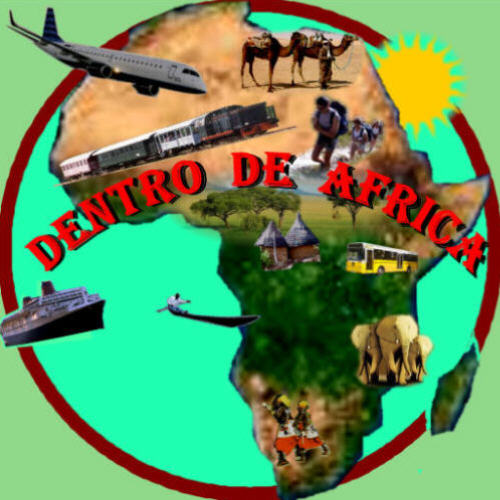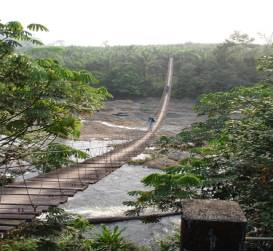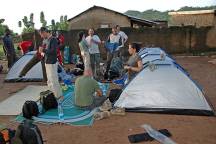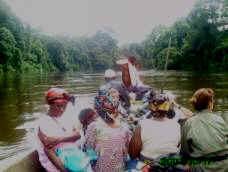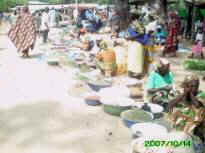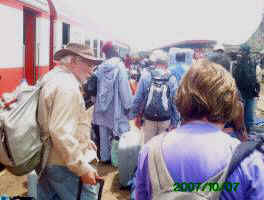|
|
|||||||||
|
TRAVEL
SALE INFORMATIONS
-Services included in our tariffs:
-Reservation and assistance -Car rental (4x4 air-conditioned cars) -Entries fees in parks and
local guides
-Lodging in recommended hotels -Welcome ceremony -Excursions in pygmies and bororos camps -Local transport: train, car, horse, canoe, plane… -Stay in traditional environment or with families -Hike in reserves and on montains -Guide fees -Airport stamp (15, 50€)
-Services not included in our tariffs:
-Passport and visa fees -Personal expenses and tips -Additional room -Food and drink -Insurance in case of cancellation or sickness -Cameras taxes in parks, reserves and museums
1-Season You can visit Cameroon in any season. Some regions and the national parks
in the northern part of the country are not very accessible during the
raining season (June to October) .Throughout the year ,travel to
Cameroon offers exciting events and the occasion to explore the
different kinds of tourism in this country in the heart of Africa. 2-Travel
dress Make sure that you have with you suitable clothing for the climate .Our
travel agency provide necessary advice to customers before the travel. 3-Local
transport
Travelling within Cameroon is most often possible by air, by car or by train. There are airports at Bafoussam, Bamenda, Bertoua, Garoua, Maroua, Ngaoundere and Yaounde. The “transcamerounais”
the main railway network(1500 km),runs across the country from
east to west and from north to south. There are regular minibuses and bus service between the major urban
centres. In rural areas, “bush taxis” do transportation. Cameroon
offers also possibilities to stroll by canoe. Stroll by canoe is
widespread on the sea,
on the rivers and lakes of Cameroon. In some regions, motorbike taxis commonly referred as “bend skin” are
the most common means of transportation used by the population. 4-Air
links Cameroon has three international airports: Yaounde, Douala and Garoua.
There are direct links with Europe (a 6 hours flight over 5000 km), at
least once a day. 5-main
airlines Camair-co, air France, SN brussels airlines, Swiss international airlines 6-links
with african countries Camair-co, Air gabon, air ivoire, Kenya airways, Virgin nigeria,
Ethiopian airways, Royal air Maroc,etc 7-Gastronomy
From
a region to another, Cameroon presents diversity of dishes highly
appreciated.” Pkem” and “Okok” are the most important dishes for
populations from the south, the centre In the littoral and the southwest region, “Ndolè” with cassava stick
is not to miss. “Nkui” and “Kondreh” in the west region make you appreciate
dishes of grass fields regions. “Eru” and “water Fufu”welcome
visitors in the northwest region where fine “Mbuh” (raffia palm wine)
makes you feel close to natural environment. If you want to taste meat, just go to the north of the country. You will
come back full of delicious memory. Fertile lands of Cameroon produce
fruits like bananas, pineapples, coconuts, mangoes, paw paws, oranges
and others. Restaurants and hotels propose international dishes. Road –side restaurants or “tourne-dos” are open-air restaurants
where people can eat at moderate costs. 8-Drinks Coming to Cameroon gives the occasion to appreciate the local beer.
Mineral water coming has a unique taste in Cameroon. Travel agents
advise visitors against taking ice cold drink in the tropical heat. In
the south, populations drink palm wine, known as “Matango”. The
occasion is given to harvest palm wine together with villagers.”arki”,”ha’a”
or “odontol” are the name of traditional whisky made from corn or
palm wine. Their process of fabrication remains the secret of the local
population. Corn beer, known as “Kpara” and “Bili bili” result
from local wine industry.
Taking pictures is free throughout Cameroon, except for those of
presidential palace, airports, military zones and installations,
security and defence personnel and aspects likely to undermine the
country’s customs and good reputation. To snap pictures during
official ceremonies, and for commercial purpose, it is better to contact
the ministry of communication in order to obtain a special authorization.
Taking photographs inside national parks is subject to a payment of a
fee per camera. It is important to get people consent before you
photograph or film them 10-Entries
formalities Holding a tourist visa is compulsory for entry into Cameroon. It is
issued by the country’s diplomatic or consular representation abroad.
It is valid for a period of 30 (thirty) days non-renewable with the
possibility of a multiple entry and exit. visa is obtainable at the
arrival airport for visitors from countries where Cameroon has no
diplomatic representation and for tourists in package tour. The required
documents include: -
A valid passport -
a return air ticket -
an international(yellow fever) vaccination card -
2 full-face passport photographs -
An accommodation certificate or hotel reservation -
A completed and signed visa application form collected from the consulate
or obtained by post or simple request 11-Customs Visiting tourists are allowed temporary free importation of the following
objects bought for personal use: jewels below 500 grams, personal
articles of clothing and items of linen, cats and dogs (subject to
fulfilment of health formalities),cell phones, 2 cameras with ten rolls
of films per camera, a smaller sized(TV/video)camera with 10 reels film,
hand-held television set and radio receiver, a hand-held video tape
recorder, a pair of binoculars, camping and sport equipment, toiletries,
three litres of wine, a litre of aperitif or alcoholic drink,500 grams
of tobacco or 400 sticks of cigarettes or 125 cigars. -for
hunting weapons and ammunitions, an import licence is required. -to
export animal products: a license from the environmental administration/authorities
is necessary -for
the importation of wooden or iron art objects, apply to the chamber of
trade and industry, mines and handicraft. 12-Airport
stamp Airport stamp for departure
from Cameroon costs 10,000 CFA F, that is 15.50€ for international
flights, 500 CFA F or 0.8€ for local flights 13-Health An international certificate of vaccination against yellow fever is
required. It is preferable to drink mineral water. Visitors are advised
against taking ice cold drink under the tropical heat. Health coverage
is good throughout the country.
14-Accommodation Large business hotels are found in Douala and Yaounde. However,
recommendable two stars hotels exist in other localities. There are two
categories of hotels in Cameroon: hotels that offer a high quality of
service and hotels which need to ameliorate their comfort and catering
services. In the northern part of the country, campsites managed by the
ministry of tourism keep tourists closer to the nature. Camping is recommended in some regions of the country like Atlantika
Mountain, mount Cameroon, villages, Mandara Mountains, bororos and
pygmies’ encampments, etc. Home stay brings the visitor closer to the
populations, an occasion to experience African lifestyle. 15-Currency
and exchange THE COMMONLY ACCEPTED FOREIGN CURRENCIES INCLUDE the euro and the U S
dollar. Currencies can be exchanged in authorized exchange offices, banks, hotels
and some travel agencies. Some hotels accept credits cards. For quick
money, transfer, go to western union. Moreover, you can withdraw money
from automatic distributors with your international credit card. Many
international banks have branches in Cameroon. Find out from your bank
before travelling. Some
credit cards enable you to enjoy medical assistance. Get information
about this from your bank before you departure. Visa and master cards
are more widespread in Cameroon. 16-Official
language Cameroon has English and French as
official languages. The linguistic map
of Cameroon however indicates that: more than 250 languages exist
throughout the national territory. Some local languages as Fufulde in
the north, Beti in the south, center and east, Pidgin in the west, North
West, southwest and the littoral region are more widespread in some
regions than official languages. Spanish, Arabic and German are studied
in secondary schools in Cameroon as second languages. So, do not be
surprised to find users of those languages and even others taught in
cultural centres and embassies
17-Where to get more informations
Ministry of tourism in Yaoundé Tel: (+237) 22 23 29 36 22
22 33 53 22
22 44 11 22 22 12 95 Fax:(+237)22 22 12 95 Web site: www.mintour.gov.cm e-mail: ctourisme@yahoo.fr
Bureau
d’information touristique pour l’Europe 26 rue de Longchamp 75016 paris-France Tel : +331 45
05 96 48 Fax : +331 47
04 49 96 Site internet : E-mail : bitcam@wanadoo.fr
Ambassade du
Cameroun en France
92100-boulogne-bilancourt Tel : +331 47
43 98 33 Fax : +331 46
51 24 52
|
|||||||||
| TOP OF THE PAGE | |||||||||

